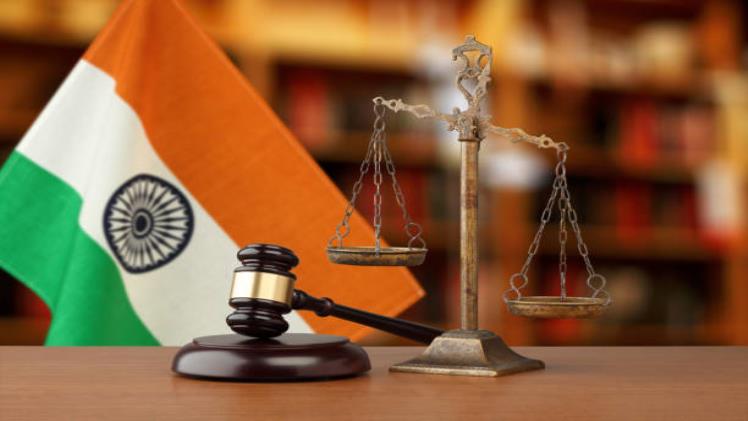Challenges and Solutions to India’s Judicial Accountability & Transparency

India has the third-largest judiciary in the world and is one of the most diverse countries. India’s judicial system is also one of the most complex, with more than 1 million pending cases in India’s high courts alone. India faces a number of challenges when it comes to judicial accountability and transparency, but there are also some potential solutions.
One challenge is the lack of transparency in India’s judicial system. For example, there is no central database of court judgments, and it can be difficult to find information about specific cases. This lack of transparency makes it difficult for the public to hold the judiciary accountable.
Keep reading as we discuss the challenges and solutions to India’s judicial accountability and transparency.
What are the reasons for ‘Tareekh-pe-Tareekh’?
This popular Sunny Deol dialogue from the movie Damini refers to India’s judicial system being stuck in a time warp. India’s judicial system is largely based on the British colonial model, which is slow and cumbersome. This ‘Tareekh-pe-Tareekh’ approach to justice means that cases can take years or even decades to resolve.
This lengthy and complex process often leads to corruption, as people are tempted to bribe officials in order to speed up their cases. In addition, the lack of transparency means that it is difficult for the public to hold judges accountable for their decisions.Click to get More Information About LG TV
The top reasons for Tareekh-pe-Tareekh’ are India’s colonial-era laws, the slow pace of judicial reform, and the lack of transparency in the system. These reasons have created a situation where cases can take years to be resolved, which leads to frustration and often corruption.See all information about mbc 2030
Laws from the British colonial era are still in place and need to be updated. India’s judicial system is also slow to change, and reforms are often blocked by those who benefit from the status quo.
If lawyers strike, as they often do, then is a presiding officer bound to grant a ‘tareekh’?
No, a presiding officer is not bound to grant a ‘tareekh’ if lawyers go on strike. However, the decision to grant a ‘tareekh’ is at the discretion of the presiding officer and depends on the facts of each case.
If lawyers go on strike, then it can cause delays in the court system. This is because there are fewer people available to work on cases. The delays can cause frustration for everyone involved in the judicial system, from judges to lawyers to members of the public.
But it is important to remember that strikes are a part of democracy, and lawyers have a right to protest. If strikes are happening regularly, then it may be an indication that there are larger problems with the judicial system.
In the past, strikes have happened due to a variety of reasons, including changes in government policy, low salaries, and a lack of resources.
For instance, in 2016, lawyers in India went on strike to protest against the government’s decision to amend the Juvenile Justice Act. The amendment allowed juveniles who had committed serious crimes to be tried as adults.
The lawyers argued that this would lead to a situation where children would be treated unfairly by the judicial system. They also said that the amendment would not do anything to address the root causes of crime.
The government eventually amended the act, but only after a lengthy court battle. This case shows how even small changes in government policy can cause major disruptions in the judicial system.
Moreover, India’s judicial system is underfunded, and lawyers are often not paid enough. In some cases, they are not paid at all. This can lead to frustration and a feeling of powerlessness among lawyers.
The lack of resources also means that courts are often overcrowded, and there is a shortage of judges. This can lead to even more delays in the court system. Sometimes, a judge has to oversee multiple cases in a day, which can lead to mistakes being made.
All of these factors contribute to the ‘Tareekh-pe-Tareekh’ culture in India’s judicial system.
Is it proper to keep an eye on the judges?
The process of selecting judges is also not transparent, and there have been allegations of corruption. For instance, in 2017, the Central Bureau of Investigation (CBI) arrested a former judge for accepting a bribe to grant bail in a case.
The CBI alleged that the judge had taken the money in exchange for granting bail to an accused person. The accused was facing charges of murder, and the bail would have allowed him to walk free.
This case highlights the need for transparency in the process of appointing judges. At present, there is no way for the public to know whether a judge is qualified or not. This makes it difficult to hold judges accountable for their decisions.
At the moment, there is no such thing as judicial accountability in India. Judges are not accountable to anyone and can make decisions without fear of repercussions.
It can be said that the judges aren’t reviewed. India’s legal system doesn’t have an effective way to check whether a judge is making the right decision or not. India needs some kind of judicial accountability mechanism, which can be in the form of review boards or independent commissions.
These mechanisms would provide a way for the public to hold judges accountable for their decisions. They would also help to ensure that judges are qualified and capable of doing their job properly.
If one gets to discover intentional wrongdoing committed by a judge, then should he /she expose it or feel scared of contempt?
There have been calls for the establishment of an independent body that can investigate complaints against judges. This body would be similar to the CBI and would be responsible for investigating allegations of corruption or misconduct.
At present, there is no such body, and the only way to expose wrongdoing is through the media. However, this is not always effective, as Judges often have a lot of power and influence.
As a result, many people are scared to come forward with information about judicial wrongdoing. They fear that they will be punished for contempt of court or that they will face retaliation from the judge.
This needs to change, and people should feel confident that they can expose judicial wrongdoing without fear of retribution. Things like RoundTable discussions from an Indian social media app like Khul Ke can help people discuss their experiences and find solutions.
The Khul Ke app has been designed for people. This app has its own messaging system where people can connect with each other and discuss their problems. It also has a feature to form groups and create events.
This app can be used to expose judicial wrongdoing and help bring about change in the judicial system. India needs more platforms like this, where people can come together and demand accountability from those in power.
In Conclusion
It is clear that India’s judicial system needs to be more transparent and accountable. There are many challenges that need to be addressed, but it is possible to make the system better.
The first step is to increase transparency in the process of appointing judges. There should also be an independent body that can investigate complaints against judges. Finally, people should feel confident that they can expose judicial wrongdoing without fear of retribution.




